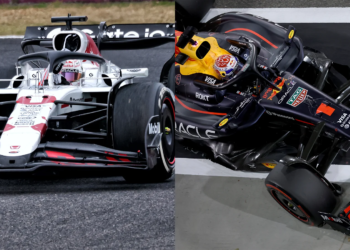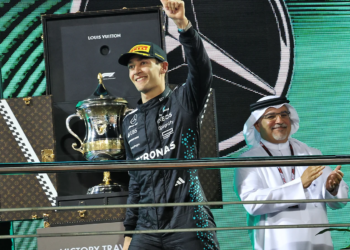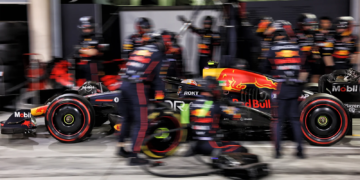Mercedes Technical Director James Allison has revealed that a dialogue has begun to introduce a race cap for all Formula 1 personnel.
The 2024 F1 calendar is scheduled to feature a record 24 Grands Prix, two more than the equal-high of 22 events that have taken place across the previous two seasons.
With drivers and engineers alike feeling the effects in Abu Dhabi last month, there are concerns that the growth of the calendar isn’t sustainable for the people involved.
However, Allison has said discussions are ongoing between F1 and the sport’s governing body in order to tackle the issue within the financial constraints of the cost cap.
“When you consider there is also winter testing to be done, if you’re one of the travelling folk, then that is more than half the year spent on the road, and in a mode of working that is quite tiring, and quite demanding,” Allison told the Performance People podcast.
“All the people back in the factory who give live support to that as well are having to take that burden on their shoulders.
“So the sport has just started to address it because the cost cap means you can’t reasonably contemplate saying, ‘Well, it’s now a sufficiently large number of races that we need to double up on the roles that do the travelling to allow them to alternate races or anything like that’.
“The financial reality of that makes that prohibitive inside the cost cap, so to try to impose some relief on an otherwise very difficult-to-manage season, the sport has just started to debate internally about whether we should have rules.”

Allison proposes that within a 24-race season, introducing a cap for all F1 personnel (excluding the drivers) of 20 races would help mitigate the issue of staff fatigue.
“Let’s say in a 24-race season, it would mean that no individual – other than the drivers – would be allowed to do all 24 races, a cap imposed, maybe at 20 races, let’s say, just plucking a number from the air,” he explained.
“It would mean that everyone previously going to have to do the full slog would only be able to do 20 of them, and the teams would have to find it in themselves to put alternative methods of coping with the absence of each member of that travelling community four times per year.
“That will be an interesting set of gymnastics to cope with.
“But the ones that wiggle their way through it effectively could turn it into an advantage by organisationally managing that in a slick way.
“But the net positive would be that at least for a small number of weekends per year, you could rest and recharge if you were otherwise committed to a travelling role.”
Allison goes on to state how such a cap would mean some weekends would operate differently for teams, with key staff missing on certain occasions.
Such examples include Mercedes Team Principal Toto Wolff – who already has the occasional absence – and race engineers, who typically travel with drivers to every race.
“That will mean people like Toto, as team principal, would have to respect it as well,” Allison added.
“The race engineers, the ones who have the closest relationship with the drivers, Bono [Pete Bonington] and Shov [Andrew Shovlin], a relationship that lots of people know about because they hear it on the radio…the drivers would have to hear a different voice four times a year.
“We’d have to figure out how to manage that in a good way.”









